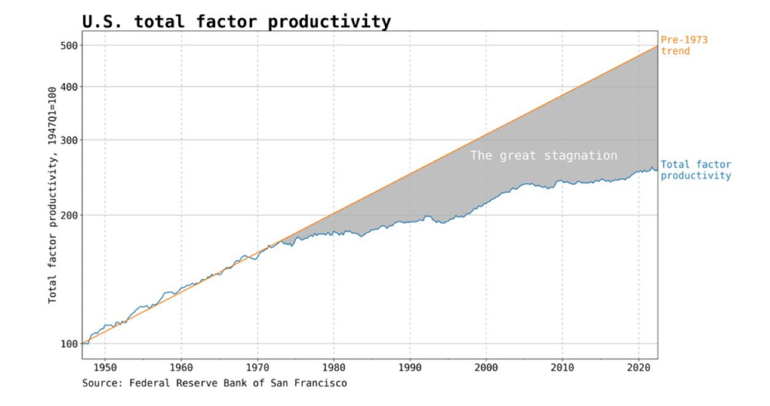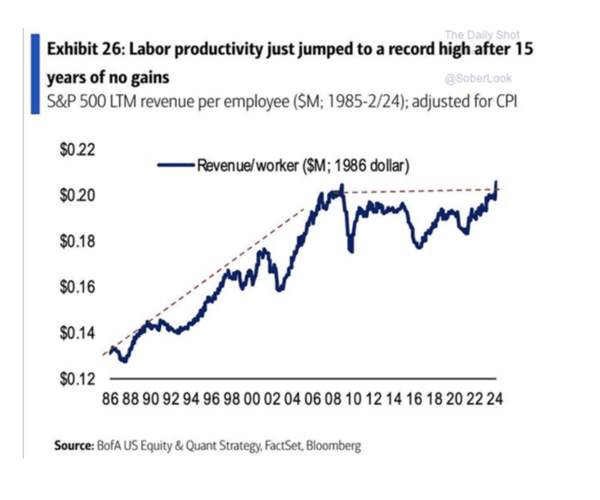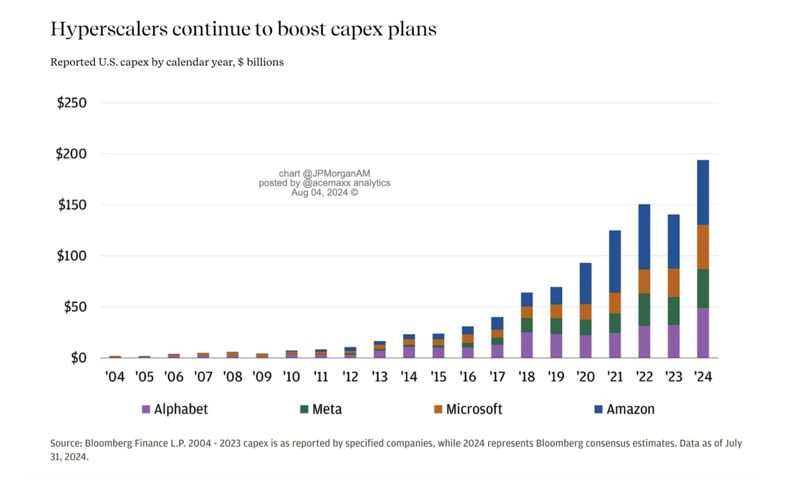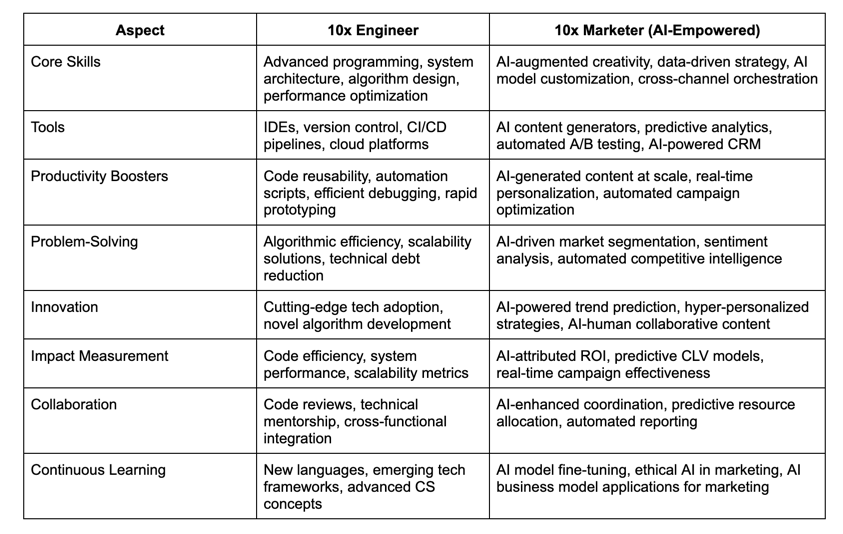Over the past two decades, productivity growth in the enterprise has been disappointingly stagnant. Despite widespread Digital Transformation initiatives, productivity gains have failed to match the significant leaps seen through the 1970s. From 2005 to 2022, non-tech companies and entire nations have grappled with sluggish growth, persistent inflation, wage erosion, and worsening budget deficits—factors that collectively undermine prosperity at both corporate and national levels.

Alephic Newsletter
Our company-wide newsletter on AI, marketing, and building software.
Subscribe to receive all of our updates directly in your inbox.
However, a productivity renaissance may be on the horizon. The widespread adoption of cloud computing and open-source infrastructure has laid the groundwork for harnessing AI's transformative potential. AI's capacity extends beyond mere question-answering; it's poised to revolutionize intelligence, potentially redefining productivity for generations to come.

Big Tech's Big Bet
As we emerge from this period of stagnation, it's evident that tech giants are wagering heavily on a productivity breakout (some might call it an intelligence breakout)—and they're positioning themselves to capture as much value as possible. This strategic positioning is reflected in their unprecedented capital expenditure, as illustrated in the graph below. Capital expenditure, or CapEx for short, is essentially a company's way of investing in its own future. It's the money spent on big-ticket items like buildings, equipment, or, in this case, massive AI infrastructure. Think of it as Big Tech's version of building a house – it's a major purchase that they expect will pay off in the long run.
To put this in perspective, Microsoft alone spent $19B on AI data centers in Q2 2024—that's $240M per day or $10M per hour. This dwarfs even the massive internet infrastructure boom of the late '90s, when the collective telecom giants collectively spent around $50B annually. We're witnessing investment at a scale that makes the buildout of the entire internet look like a warmup act.

We believe this isn't just big tech flexing its muscles—it's a seismic shift that will reshape the intelligence landscape. For us marketers, the message is clear: AI isn't just coming, it's arriving with the force of a tidal wave. The question isn't if it will transform our field, but how quickly and how profoundly we'll adapt to ride this wave.
What Does This Mean for Marketing?
As marketers, our imperative is to anticipate technological trajectories, understand the bets being placed by tech industry leaders, and identify the best ways to leverage these investments. Just as the interstate highway system—originally conceived for national defense under President Eisenhower—was a boon for CPG marketers as it became the physical rails of distribution, this new wave of AI technological growth could give rise to "super talent" in marketing: the 10x marketer.
The concept of a 10x marketer can be understood through the comparison of the well-known idea of a 10x engineer in tech companies.
Fred Brooks, author of The Mythical Man-Month, played a significant role in popularizing the concept of large productivity differences among software developers. In the tech world, a 10x engineer is often described as a software developer or engineer who is ten times more productive than an average engineer. These individuals are known for their:
- Exceptional problem-solving skills
- Ability to write high-quality, efficient code
- Deep understanding of systems and architectures
- Capacity to innovate and implement new technologies
- Ability to multiply the effectiveness of their team
The 10x Marketer in the AI Era
Drawing parallels to the 10x engineer, we can imagine how a 10x marketer in the age of AI could be conceptualized as follows:

In essence, a 10x marketer in the AI era would be someone who harnesses the power of AI to dramatically amplify their impact, much like a 10x engineer uses their exceptional coding and problem-solving skills to create outsized value. This marketer would not just use AI tools, but would understand how to customize and combine them, interpret their outputs, and translate AI-driven insights into groundbreaking marketing strategies.
They would be able to operate at a scale and speed previously unimaginable, managing complex, multi-channel campaigns with a degree of personalization and optimization that would be impossible for a human alone. Moreover, they would be able to predict trends, automate routine tasks, and make data-driven decisions with a level of accuracy that could transform the effectiveness of marketing operations.
Just as a 10x engineer can revolutionize a company's technical capabilities, a 10x marketer could redefine a company's market position, customer relationships, and overall growth trajectory in the AI-driven future.